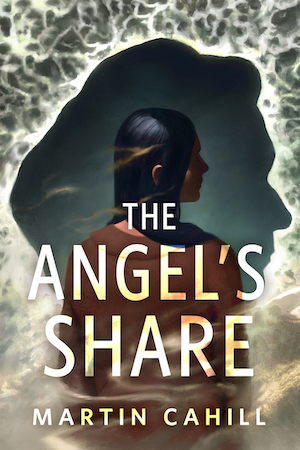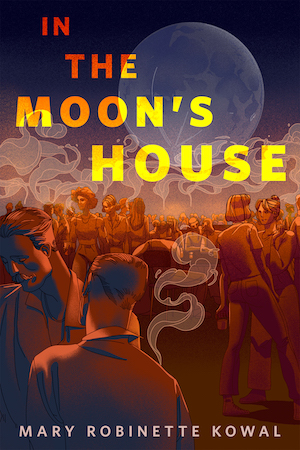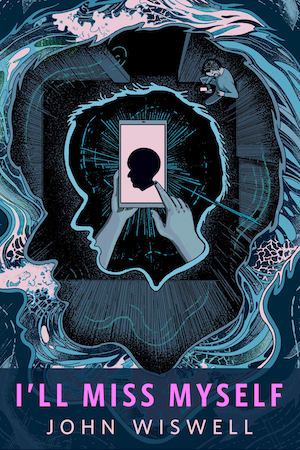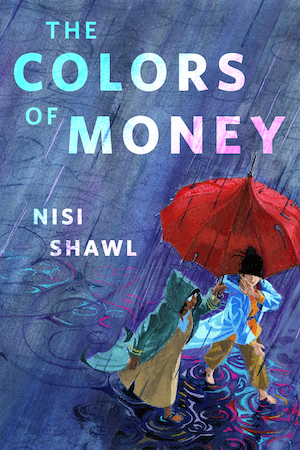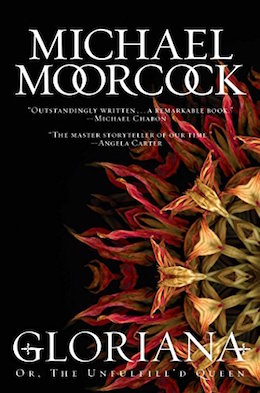There are several clichés at hand to tempt any critic who learns that a book was written in six weeks. If the book is earnest, angry, and topical, we might speak of the “rush of inspiration” that “propelled” the author’s pen or made his keyboard clatter. If it’s a first novel, we may express wonder at the “sudden” and “mysterious” “flowering” of the author’s imagination. If the book is a paperback original published under a pseudonym, we might sneer at “hackwork,” or, in a more generous mood, acclaim the “workmanship” of its “journeyman” author. Alas for the reviewer who comes to Michael Moorcock’s Gloriana, or, the Unfulfill’d Queen: Although Moorcock completed the book in just over a month, none of these standard remarks applies.
Gloriana was very far from being Moorcock’s first published book; although his bibliography is notoriously byzantine, full of revisions, retitling, and pseudonyms, a little research shows that he had published over forty individual works by the time Gloriana appeared in bookshops, a year before the end of his thirties. If anything, the book’s composition was remarkable for its relative slowness: he once completed a four-volume series in two weeks. It says a great deal of his talent that many of these books, rushed and uneven as some might be, remain in print.
Moorcock conceived of Gloriana as his last fantasy novel, which it wasn’t, and as a crucial turning point in his career, which it was. Spenser’s The Faerie Queene—that great Elizabethan allegory and a favorite, like Bunyan’s Pilgrim’s Progress, of Moorcock’s childhood—provides some of the names (e.g. Una, Duessa) and many of the visuals in Gloriana. Moorcock, who once sketched new worlds in a few paragraphs and then destroyed them in a sentence, here borrows many of the tricks of epic poetry: long catalogues of exotic names, exhaustive inventories of elaborate pageantry, fantastically exaggerated settings, and characters ludicrously exemplary of Vice or Virtue.
Of course Moorcock, an anti-imperialist and anti-monarchist writing nearly four hundred years after Spenser, during the reign of a second Queen Elizabeth, had very different political and aesthetic goals. Though Gloriana’s ascension to the throne of Albion has heralded a universally proclaimed, uncritically accepted, and always capitalized Golden Age, we quickly learn that the Gold is mere gilt. Lord Montfallcon, master of realpolitik and advisor to the queen, celebrates the abolishment of capital punishment, but maintains it through assassination; he proclaims the triumph of diplomacy, but doesn’t hesitate to have visiting heads of state kidnapped for political reasons. With the assistance of the louche and ruthless Captain Quire, a self-proclaimed aesthete of crime, Montfallcon ensures that Albion continues to function and that his queen remains ignorant of the crimes committed in her name. Yet even in the palace, the truth stirs: though Montfallcon claims the dark days of Gloriana’s father have vanished forever, still a hidden community of disgraced lords and exiled ladies lingers unrecognized in the tunnels beneath the palace.
After thirteen—note the ominous number—years of peace, Albion is due for an upheaval, and would be even if Gloriana were as inhumanly regal as she presents herself. In fact, the Queen spends her nights with an endless succession of lovers, men and women, old and young, fair or freakish, sick or healthy, but cannot find physical satisfaction. Gloriana has suppressed her personality so that she might become the incarnation of the beneficent state, and this exacts a price on queen and subjects alike. “Gloriana” is an unwieldy name more befitting an allegory than a flesh-and-blood person; hundred of pages pass before anyone thinks that she might go by just “Glory.” Mortals, after all, cannot be faerie queenes.
(I should, at this point, make some reference to the controversy surrounding the book’s central sexual allegory, the “unfulfill’d” queen. Moorcock’s books are full of symbolically charged sex acts, like the transgressive incest of the Cornelius books, the central encounter of Breakfast in the Ruins, or the fascist degradation of The Vengeance of Rome, and this tendency has occasionally landed him in trouble. As such, current editions of Gloriana feature a slightly rewritten ending. Several critics told Moorcock that the original ending, in which good arises from a profoundly evil act, could be misconstrued as justifying sexual violence. Rather than denouncing the critics as scolds, the author took a second look, reflected on likely misreadings, and changed the text. The revised ending, in my view, is not just less dangerous: it is also more believable and more aesthetically satisfying.)
Readers, particularly those with advanced English degrees, who focus on Gloriana’s Spenserian elements, miss an even more fundamental influence. Think of Gloriana’s underground community of tunnel dwellers, with its attendant vision of a palace so vast and elaborate that no one knows it whole, and so old that it is built atop older versions of itself. It’s an image straight out of Mervyn Peake’s Gormenghast novels. The young Moorcock knew the elderly Peake, and throughout his fifty-year career Moorcock has championed Peake as both a great artist and a kind friend; he has written forewords to Peake’s writings, composed a memoir of their acquaintance, and even helped arrange republication of his stories. Gloriana, it should come as no surprise, is dedicated to Peake’s memory.
In his afterword to the current edition, Moorcock states that, as he wrote Gloriana, he had already begun planning the Pyat books, two thousand pages of malign fantasy and rickety self-exculpation from a serial liar who has abused his own gifts of imagination. The artful villainy of a Captain Quire, who practices crime for crime’s sake, and the anguished compromises of Lord Montfallcon seem innocent indeed when placed before the crimes—lynchings and pogroms, total war and the Holocaust—contemplated in the Pyat books, yet you cannot deny the continuity between these two stories. There is, indeed, a brief mention of a Pyat in Gloriana; he seems an unsavory character, and it’s just as well we don’t meet him. What Gloriana shows discreetly clad in Romance and safely distant in far-off Albion, the Pyat books expose completely, obscenely bare and unbearably close—in our world and in the author’s own lifetime. Many of Moorcock’s future fantasy novels, like The War Hound and the World’s Pain, would share this pained forthrightness.
Though we know Gloriana was not Moorcock’s last fantasy, it’s easy to imagine how it might have been. Though different in form, pacing, prose, and ambition from Stormbringer or the Hawkmoon books, the tale of The Unfullfill’d Queen is shot full of allusions to past books, as if he had to grant a fond goodbye to each of the many worlds he’d already fashioned. The names of the unfeeling gods of the Eternal Champion novels—Xiombarg, Arioch, and their peers—survive in Gloriana as courtly expletives, and the figures of the commedia dell’arte that so enliven the Jerry Cornelius stories make an appearance, too. Though Moorcock admits that his first surviving novel embarrasses him today, Gloriana ends with the queen boarding the Golden Barge that gave that book its name. Perhaps, in looking back on his career thus far, Moorcock decided that life and art yet remained in it. Gloriana marked a change, but not an ending—and for that all fantasy readers should be grateful.
Matt Keeley reads too much and watches too many movies; he is helped in the former by his day job in the publishing industry. You can find him on Twitter at @mattkeeley.


